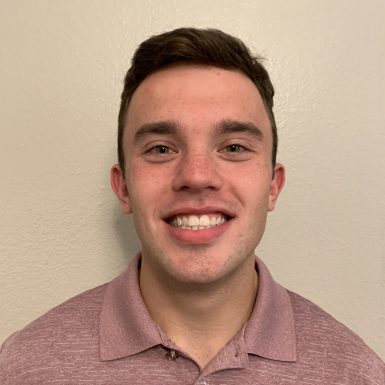Guns and Gridlock: Examining the NRA’s Legislative Influence in Congress

PATRICK RYAN
Email: patrickryan2241@gmail.com
Faculty Advisor: Mary McGrath
BIO
Patrick is originally from Arlington Heights, Illinois. He graduated from Northwestern in Spring 2020 with a BA with honors in Political Science. During his time at Northwestern, he was heavily involved with the Northwestern Jazz Orchestra, where he played trumpet. He is also a huge Wildcat football fan and have not missed watching a single game since his freshman year. He is currently a 1L law student at Pepperdine Caruso School of Law in Malibu, CA., and is very interested in criminal justice reform, employment law, and civil rights law.
Q&A
My research question is: does the NRA’s opposition to gun control through its various modes of influence reduce the number of gun control bills proposed in Congress? Concisely put, I am examining the NRA’s legislative influence in Congress, specifically asking whether the various ways that the organization tries to influence the proposal of legislation actually has a noticeable effect on the number of gun control bills proposed in Congress. The answer to this question provides important insights into whether the NRA has significant influence in the legislative process and helps provide a case study in special interest group influence in Congress. Understanding the extent of the NRA’s influence on the legislative process will help to provide at least a partial answer to the puzzle of a lack of gun control legislation in the U.S. despite overwhelming public support for action against gun violence.
My interest in the NRA and the broader social issue of gun violence in America stems from two main sources. The first is growing up in this era of frequent mass shootings, which included a hoax at Northwestern’s own campus in 2018. I vividly remember being in the library when my phone exploded with alerts about a gunman on campus and texts from friends and family asking if I was ok. In addition, I vividly remember the day that Sandy Hook happened and how my parents were fearful of my safety as a child in school. I also remember the day the shooting in Parkland, FL happened. These events sparked my interest in the gun control debate in Congress and were the ultimate motivation for my thesis. The second source of my interest in this research topic is my political science-based interest in how special interest groups and lobbyists affect the passage of legislation in Congress. Studying the influence of money and lobbying in politics has always fascinated me, and this thesis project allowed me to explore one of the wealthiest and most powerful interest groups in Washington. After lots of background research, I ultimately narrowed my research question to a focus on the ways in which the NRA influences the passage of gun control legislation in Congress.
I think my work provides valuable insight into the mechanism of power of one of the most powerful special interest groups in American history. Further, it discusses a framework of special interest group influence and how the NRA fits into that framework. I predict two main future directions of this work. The first is a deeper understanding of special interest group influence in American politics, which can be extrapolated to many different special interest groups in various arenas of public policy. The second, and arguably the more important, is that I have outlined a framework for studying the NRA’s legislative influence in more depth. My research could easily be expanded by investigating the Congressional and NRA responses in the aftermath of more mass shootings and to continue analyzing the number of gun control bills proposed in future Congresses.
I am currently a 1L law student at Pepperdine University Caruso School of Law in Malibu, California. I am very interested in criminal justice reform, employment law, and civil rights law.
